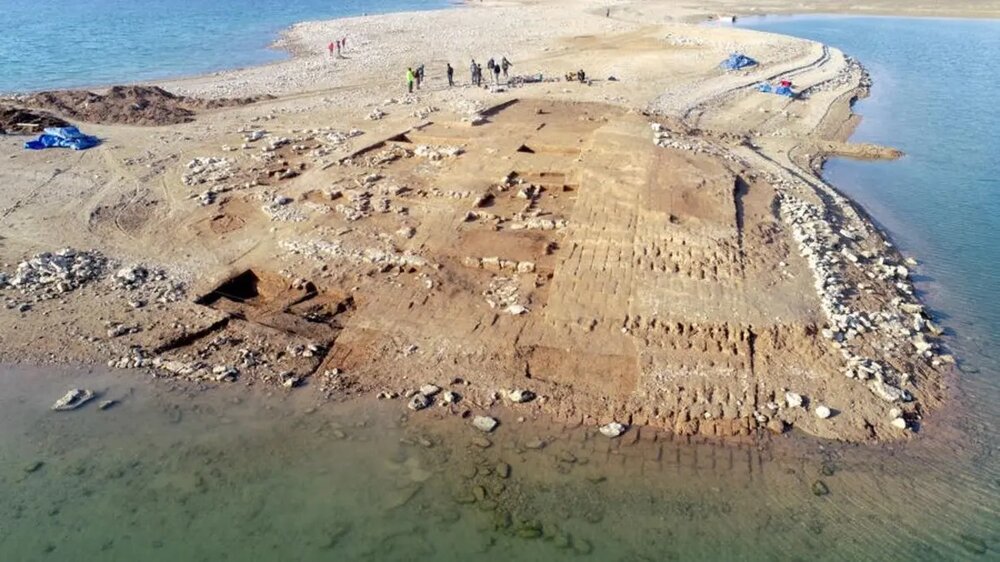Drought unveils 3,400-year-old palace of Indo-Iranian empire

TEHRAN – Remnants of a 3,400-year-old palace emerged from the waters of the Mosul Dam reservoir in northern Iraq early this year as water levels fell rapidly due to extreme drought.
Receding waters has provided a significant opportunity for an Iraqi-German archaeological team to race against time to excavate and document an emerging Bronze Age city before it disappears under water.
The palace belonged to the mysterious Mittani, an Indo-Iranian empire centered in northern Mesopotamia that flourished from about 1500 to about 1360 BC.
The team has discovered important clues about one of the most significant archaeological discoveries in the region, according to Kurdish archaeologist Hasan Ahmed Qasim who worked on the site.
The Mittani Empire is among the least researched empires of the Ancient Near East. The information on the existence of this particular empire is so little that historians don’t even know the capital of the Mittani Empire, archaeologist Ivana Puljiz of the University of Tübingen said.
In the second millennium BC, colorful murals were the prime feature of palaces in the Ancient Near East but they never found any so well-preserved, Puljiz explained.
The researchers hope to find more about the Mittani Empire, which was prevalent in several parts of Syria and northern Mesopotamia.
According to Britannica, at its height, the Mitanni Empire extended from Kirkuk (ancient Arrapkha) and the Zagros Mountains in the east through Assyria to the Mediterranean Sea in the west.
Mitanni was one of several kingdoms and small states founded by the Indo-Iranians in Mesopotamia and Syria. Although originally these Indo-Iranians were probably members of Aryan tribes that later settled in India, they apparently broke off from the main tribes on the way and migrated to Mesopotamia instead.
AFM
Leave a Comment